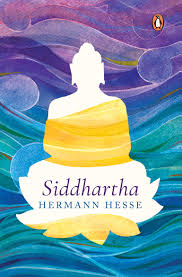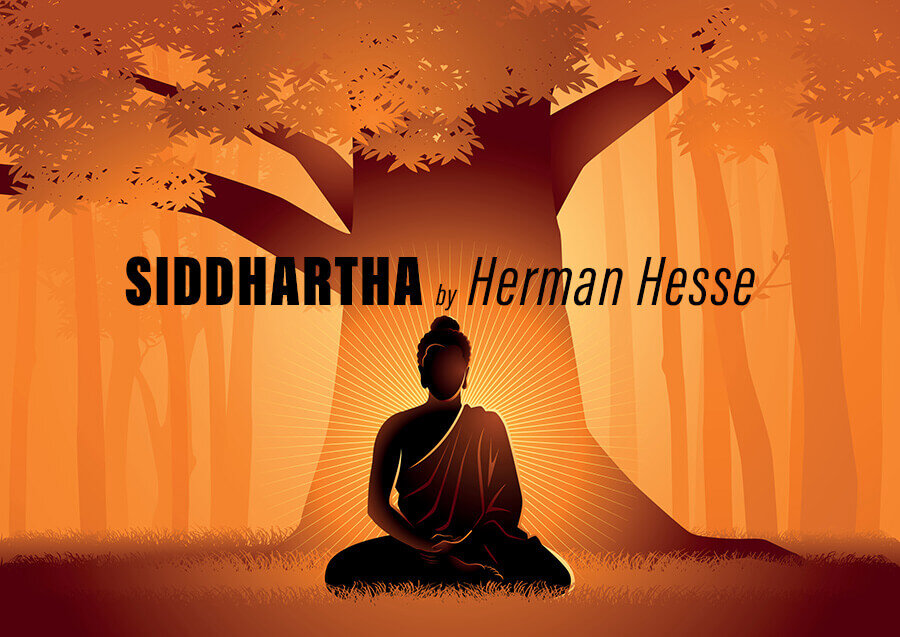Have you ever felt that life is more than just a series of milestones? That behind all the chaos of our daily lives lies something deeper, something that whispers quietly, urging us to listen? That’s exactly how I felt when I picked up Siddhartha by Hermann Hesse.
This isn’t just a book—it’s an experience. It’s the story of a young man’s journey, but in many ways, it’s also our story. Because at its heart, Siddhartha is about the universal quest for meaning, connection, and peace.
What Is Siddhartha by Hermann Hesse About?
Set in ancient India, Siddhartha is the story of a young man named Siddhartha who embarks on a lifelong search for enlightenment. Dissatisfied with the teachings of his elders, he sets out on a journey to find his truth. Along the way, he explores everything—from asceticism to indulgence, from intellectual pursuits to raw, unfiltered life experiences.
But this isn’t a religious story. You don’t have to follow any specific path to connect with it. Instead, the book focuses on something much more universal: the inner journey we all take to understand ourselves and the world around us.
One line from the book sums this up beautifully:
“I have had to experience despair, I have had to sink to the greatest mental depths, to thoughts of suicide, in order to experience grace.”
To me, this felt like an acknowledgment that no matter how dark things might seem, every experience—good or bad—is a step toward growth.
Key Themes That Resonate Deeply
1. The Search for Authenticity
Siddhartha’s journey begins with questioning the life he was born into. He realizes that just because something has been handed down as “truth” doesn’t mean it’s his truth.
I think we’ve all been there, haven’t we? Maybe it’s when we question the career path others expect us to follow. Or when we start doubting societal definitions of success. For me, this realization hit during my early twenties, when I felt trapped in a cycle of doing what I “should” do rather than what felt right for me.
Hesse captures this inner conflict perfectly:
“I will learn from myself, be my own pupil; I will learn from myself the secret of Siddhartha.”
This line made me pause. It’s a reminder that no teacher, no book, no doctrine can replace the lessons we learn from our own lives.
2. Balance Between Opposites
One of the most striking aspects of Siddhartha’s journey is his exploration of extremes. He tries renunciation, starving himself of all worldly pleasures. Then he swings to the other side, indulging in wealth, love, and luxury. Neither path gives him peace.
Doesn’t this remind you of the times we chase one extreme, only to find it unsatisfying? Maybe it’s working endless hours for a promotion, or giving up everything for simplicity, only to feel something’s still missing.
Siddhartha’s eventual realization struck a chord:
“The river taught me how to listen; you will learn from it, too. It taught me how to listen with a quiet heart, with a waiting, open soul.”
The river, in the story, becomes a symbol of balance—a place where opposites merge. It taught me that life isn’t about choosing one extreme over the other; it’s about flowing, adapting, and embracing both.
3. The Non-Linear Nature of Growth
One of the most beautiful aspects of Siddhartha is its honesty about how messy growth can be. There’s no straight line to enlightenment. Siddhartha stumbles, gets lost, makes mistakes, and starts over.
In my own life, I’ve often felt frustrated when things didn’t go as planned—when my efforts to “improve” myself seemed to lead nowhere. But this book reassured me that the detours are just as important as the destinations.
Hesse writes:
“Wisdom cannot be imparted. Wisdom that a wise man attempts to impart always sounds like foolishness to someone else.”
This line was freeing. It reminded me that wisdom isn’t something you can simply be handed. It’s something you earn through living—through every stumble, every heartbreak, every triumph.
The Simplicity of Profound Truths
One of my favorite parts of the book is Siddhartha’s relationship with Vasudeva, the ferryman. Vasudeva doesn’t preach or try to “fix” Siddhartha. Instead, he teaches by example—through his stillness, his attentiveness, and his connection to the river.
This reminded me of a mentor I once had. He rarely gave me direct advice but always listened deeply. In his presence, I found clarity—not because he gave me answers, but because he created a space where I could find my own.
Hesse captures this dynamic beautifully:
“The river is everywhere at the same time, at the source and at the mouth, at the waterfall, at the ferry, at the rapids, in the sea, in the mountains, everywhere, and that the present only exists for it, not the shadow of the past nor the shadow of the future.”
It’s such a simple metaphor, yet it holds so much wisdom.
What Siddhartha Teaches Us About Spirituality
Spirituality, as presented in Siddhartha by Hermann Hesse, isn’t about rituals or doctrines. It’s about listening—to yourself, to nature, to the flow of life. It’s about realizing that the answers we seek are often already within us, waiting to be uncovered.
This realization is both humbling and empowering. It means we don’t have to look outward for validation or meaning. We just have to be present enough to hear our own truth.
Why You Should Read Siddhartha by Hermann Hesse

If you’ve ever felt lost, or if you’ve ever wondered about your purpose, this book is for you. It doesn’t promise quick fixes or clear answers. Instead, it gives you something much more valuable: a mirror to reflect on your own journey.
Hesse’s language is simple yet poetic, making it accessible even if you’re new to spirituality. And the lessons? They’re timeless.
Final Thoughts
I closed Siddhartha with a quiet sense of awe. It didn’t “teach” me anything new, but it reminded me of what I already knew deep down—that life’s greatest truths can’t be taught. They must be lived.
One line stays with me:
“When someone is seeking, it happens quite easily that he only sees the thing that he is seeking; that he is unable to find anything, unable to absorb anything, because he is only thinking of the thing he is seeking.”
This book isn’t just a story; it’s an invitation. An invitation to let go of the chase and start listening—to the world, to yourself, and to the river of life flowing through it all.
If that resonates with you, I hope you’ll pick up Siddhartha by Hermann Hesse and start your own journey. Trust me, it’s worth it.

